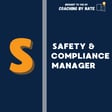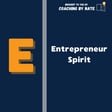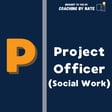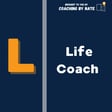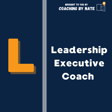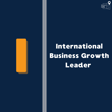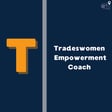Become a Creator today!Start creating today - Share your story with the world!
Start for free
00:00:00
00:00:01

BeeKeeper: Rachel made a true sea change, pilot and business woman to bee keeper
This week you will meet Rachel, who has a passion for beekeeping that will inspire you to want to do the same! Nobody’s career journey is straightforward, but Rachel’s is unique and we learn how she went from being a pilot to a bee keeper.
Transcript
Welcome to 'A to Z Jobs'
00:00:05
Speaker
Welcome to A to Z Jobs, the podcast that delves into the fascinating world of careers, one profession at a time. In each episode, we'll deep dive into a specific profession, exploring its history, requirements, challenges, and rewards. So get ready to expand your horizons, challenge your perceptions, and discover a world of possibilities. I'm Roxy. And I'm Nate. And we're excited to host you on this journey.
Meet Rachel: From Pilot to Beekeeper
00:00:28
Speaker
In this week's episode, you'll meet Rachel, who has a passion for beekeeping that will inspire you to want to do the same.
00:00:33
Speaker
Nobody's career journey is straightforward, but Rachel's is unique. We'll learn how she went from being a pilot to a beekeeper. Hi, Rachel. Welcome to our podcast. Thank you for having me. Thank you for taking up your evening. So let's jump straight into the first question and find out what you do for a living. I do a few things for a living. I am primarily at the moment a full-time beekeeper. I run a beekeeping business.
00:01:02
Speaker
that has a few components. So I do personal coaching or you could call it mentoring. I also take workshops both in one of our local businesses. I use that as a base and I have hives there, but I also go into schools and do school workshops for kids, preschool and primary school predominantly. And I sell my honey.
00:01:32
Speaker
I tend to my hives. And so I'm working sort of across the platform in terms of education in the space of beekeeping. It's a growing area in terms of interest. So I'm finding it really fun and really varied. So that's primarily my job.
A Family Business in Bali
00:01:51
Speaker
And then the other thing that I do is I oversee the running of a business in Bali, which is a family villa business.
00:02:01
Speaker
it's one villa. I did pre-COVID, I used to run it also with retreats, so we'd do mums and daughters retreats and dads and sons retreats, mum's retreats, all sorts of things like that. But then COVID hit, so we sort of had to
00:02:19
Speaker
everything came to a grinding halt for a while, but we managed to keep the same staff on who were like family to us. So that's been really nice for them to be able to come back and actually have people in the villa rather than just living there in an empty villa. And so I oversee the running of that. So I've got three staff there and that's a really nice thing just to have as an extra source of income.
00:02:44
Speaker
And then until recently I was running and overseeing a charity, which we're just in the process of winding up now, which is a youth mental health charity. So we're just in the final stages of wrapping that up. And lastly, I'm a, I guess, full-time mum in that I have three children who are in high school and I thought it was going to get easier, but it seems to get busier.
00:03:12
Speaker
and busier as time goes on because they're just into everything, lots of activities, but it's less about, you know, making lunches and washing their clothes and more about being mum's taxi and just being in the car constantly driving. So luckily I have jobs that are fairly flexible so I can kind of work from the car while I'm driving the kids to netball, et cetera. So yes, a few different things there that fill my day.
The Villa's Cultural Context
00:03:41
Speaker
Hence, brilliant. Lots of hands. It's incredible. Where is, which part of Bali is your villa? Jimbran. Jimbran Bay.
00:03:49
Speaker
so just south of the airport so you head down to the little bottleneck before the bulge at the bottom of the island and it's on the western side so it's right on the beach nice and quiet a couple of nice hotels there the Four Seasons and I think the intercon are still there so we're close to them so a slightly older crowd but it's it's much quieter
00:04:16
Speaker
and a little bit more local. So you have the local fish markets with which are the stinkiest fish markets I've ever been to in Asia but they're very authentic and all the locals flock down to the beach at five o'clock in the evening and the Indonesian kids or the Balinese kids specifically
00:04:36
Speaker
swim or just go in sort of knee deep or waist deep in all their clothes. And that's their time to sort of have their bathing. So it's, you really feel part of the local culture when you're seeing it all the time. And there's ceremonies in all the back streets that you can wander through. So it's not as touristy as other parts of Bali. So that's a bit more of, I guess, richer culture to all experience.
00:05:04
Speaker
My parents-in-law, they're retired, but they're actually moving to Bali for a year. They're leasing a place up at the top of Bali. I can't remember the name, but it's where all the dolphins are. They're renting a villa up there for a year. But yeah, it'd be good to have some contacts down the other part of Bali as well. So I'll hit you up for those villa details. Yes, yes, I'll give you the website.
00:05:30
Speaker
Definitely. And then maybe when we're actually up and running properly as a career coaching business, we can run a retreat with you guys. Yes, I have done a couple, I have had a couple of corporate retreats in there actually. There was a writer's retreat once from Singapore. And they had a really lovely time. Just needed to get away to be able to sit down and get in the headspace of writing in a nice pillow. So yeah, it's, it's, that's a lovely thing to have on the side.
00:05:59
Speaker
Definitely. I do love the sound of parents' retreats and mums and daughters and having those specifics is brilliant.
Striving for Work-Life Balance
00:06:10
Speaker
So with all those different hats and all those different things, do you have an average day? What does a day look like for you? So what does a day look like for me?
00:06:25
Speaker
I still haven't mastered the art of balance. I'm still working on that. I'm in my 50s now and I think I'm still figuring out balance. But I do feel that as we get older, we do get better at prioritising our own health.
00:06:44
Speaker
in that process of what comes into a normal day. So I'm thinking about that because the weather's just getting warmer here in Kaima now and I've just set a new regime this week that if I want to have my morning coffee, I have to go for a swim in the ocean first. So I'm doing my ocean swim and then I'm having my coffee and then I feel better, I feel good about myself.
00:07:06
Speaker
So I always try and do a bit of exercise in the morning. And then the day hits with the ground running of anything of a number of different things. So for example, today I was up at the local primary school at 7.45 this morning.
00:07:26
Speaker
to take three kids who are the lucky ones that get chosen for that particular day to put B suits on and go and have a look in a real hive at the primary school. Generally the grade fives and sixes are the ones that get to do that but they've actually introduced a whole B education program as part of a bigger garden program at the school and they've got a lot of space to do it so it's actually really wonderful. I was up there this morning doing that to get in early before the heat hit
00:07:58
Speaker
And then after that, I had to go straight to a client's house to help him do a split on a hive because his bees are getting too big in volume. There's too many bees. We needed to basically split the hive and I take half the box away, which I did.
00:08:16
Speaker
And then I brought that back to the house and then remembered that I hadn't had breakfast and it was already lunchtime. So then I decided to kind of have brunch. And then I was out the door again to go and pick up a queen bee from someone who's a queen breeder and deliver that to some other hives that I have close by to hear about five minutes away, put that queen in.
00:08:42
Speaker
and then back to the school to deliver a bit of equipment that they needed. And then just in time to pick up the kids off the bus from school. So in any day, I could be in a B suit at my desk, reading emails, trying to update the website, write a blog. I could be
00:09:11
Speaker
struggling doing my Instagram posts, trying to edit a video that I always, always struggle with to do my Instagram feeds, which obviously is part in the parcel of running a business. You have to keep that going to keep your audience engaged. I could be on the phone to my staff in Indonesia and lots of phone calls. People, a lot of people will call me and ask questions about bees.
00:09:42
Speaker
And I also have plenty of phone calls with collaborators, collaborators being anyone from the local worm farmer to the local nursery to a local shopping centre that wants me to come in and do a workshop or a school that wants to talk to me about how I might do a workshop at their place. So very varied, lots of time in the car.
00:10:05
Speaker
Um, but also lots of time out in nature. And I think the thing that I love about it is that no day is ever the same. There is not one single element of me ever saying my life is like ground, that movie groundhog day, because it's just not boring at all. It's always interesting. So yeah, not, um, not your usual career, I guess you could say.
00:10:29
Speaker
Oh, it sounds great. You've got a really good mix. You're teaching kids, you're helping the world, you're getting stuck in with the local community. It sounds like a dream to me. How much maintenance is a beehive? Like how much time actually do you have to spend hiving things?
00:10:50
Speaker
Hmm. Yeah, it's a good question. It's a lot more than people think. Had I known how much work was involved, I might not have taken it up initially. I think I probably would have been a little bit more organized, better educated, done a few more courses, had a mentor, all of the things that I'm now trying to help my clients with that I didn't have
Efficient Beekeeping Tips
00:11:16
Speaker
when I started. So I was constantly on the back foot.
00:11:19
Speaker
if you're on the front foot and you're organised it's not actually that time consuming but
00:11:26
Speaker
For example, I average out for most hives over the course of an average year weather-wise, which, of course, we don't have anymore. So everything's changing all the time. But if we were to have a normal year, it would probably be 12 inspections over the course of a year. So one a month on average. And each of those inspections would take, say, two hours. So two 12s, 24 hours.
00:11:53
Speaker
That's for the maintenance of the bees. Then outside that comes maintenance of the boxes. Cleaning of equipment. Beekeeping is a really messy profession. You've got wax that's sticky and gets everywhere and you can't get it out of anything. Then you've got propolis, which is the most powerful glue on the planet. It's incredible.
00:12:17
Speaker
in terms of being a natural glue anyway and that is so sticky it just gets into everything and then of course you've got honey which brings ants and all sorts of other critters so it's a messy business so then you need hot water and then you need other equipment to do the cleaning and then you realize that no one ever told you that you actually needed a big hot tub to soak everything and
00:12:42
Speaker
The list kind of keeps growing with the equipment that you need. But I think the key is the more organized you are and the more you've got your lists and you're ahead of the game, you end up being quite effective. And it does take a number of years until you really get into a bit of a rhythm and find that you're being a bit more effective with your time, I think.
00:13:05
Speaker
Almost learn from your mistakes always. Absolutely. And in a way, everyone who gets into it has to learn. That's the best way to learn. But you can save a lot of expense and time and grief, having someone kind of coaching you through it, I think, which is something that I didn't have. I learnt the hard way for sure.
00:13:26
Speaker
Yeah, definitely. We're very good advocates for mentoring. I think that's probably why we wanted to start this podcast, really, is to try and get as much knowledge out there as possible about each job and where to start. So there's like a little look under the hood. Like, what did you wish you knew, you know? How can we help you make a bees one-on-one to send on to someone and be like, make sure you've got that bathtub full of hot water?
00:13:50
Speaker
Yeah and I guess and that's it and I think the other thing about beekeeping is there are so many different components to it that you can branch out on or focus on. So some people are only keeping bees because they want the wax to make candles because they have a candle business. I've got a lady who is a wedding celebrant
00:14:13
Speaker
and she wants me to pass on my spare wax so that she can make candles using my wax because she'd rather you use local wax than import it from Queensland.
00:14:22
Speaker
And then there's other people who are only doing it for the honey. And there are other people who just want to be able to have these and go and sit in the garden with a cup of tea and just watch them and just have the joy. And then obviously you've got schools that want them because they want the education piece. And also when it's kids, if you don't have the honey, then they'll probably lose interest pretty quickly. So there needs to be a sweetener there. And so I try and
00:14:51
Speaker
I try and teach all of my clients that I mentor and coach that it's really good to have a goal from the get-go, even if that goal is constantly changing, that's fine. You can update the way you operate, but if you don't have a goal,
00:15:08
Speaker
You tend to go off on 10 different tangents and want to try everything at once. And that's when you really get into a mess because you've got wax over here and you've got propolis. Because propolis is a big industry now too for anti-microbial, anti-bacterial.
00:15:24
Speaker
antifungal, anti this, anti that. So propolis is becoming a real powerhouse in the world of potentially replacing antibiotics, which we're now all becoming, um, what's the word, not immune to, um, a resistance. Thank you. So, um, yeah, that's, that's a big area that I would love to sink my teeth into with some scientists down the track. But again, that takes money and it takes time.
00:15:53
Speaker
So it's about finding, as I give the advice now with beekeeping, try and just find one thing to start with and just focus on that and try not to get distracted, which is almost impossible when you've got 60,000 bees flying around, there's all this stuff going on and fun things that you're learning. But keeping that focus is key to success, I think, and I've learnt the hard way with that one too.
00:16:17
Speaker
It's solid advice for any business. Roxy and I are the same. Like, we've started a business yet so excited. There's a hundred different directions and we take it in turns, plugging each other back to our core. We need to just focus on the core. For now, then we can look at the other ones. Are you feeling inspired by everything you've learned so far? Keep that momentum going with our four-part career change made easy course. Dive deeper at thecareerchangecoaches.com.
00:16:46
Speaker
Now enjoy the rest of the podcast. So easily distracted, aren't we? So easily distracted. You have to try and figure out your your routine, even though you don't have one. And it's the hardest thing, you know, every day is different. But you've got to sort of work out how you do each process and lock it down so that you can go on to the next one and make it better.
00:17:14
Speaker
But yeah, I mean, it sounds like you have a full array. So you've got clients, you've got kids, you've got the community, you're running your business at the same time with admin and the social media and working out how to self-brand and all of that, which are actually incredibly the same themes for every career now. It's so weird. It's that the people, the self-management and then also the time management and the self-branding as well, which is incredible.
00:17:43
Speaker
So how did you get started in all this? I know you've got a wonderful career journey. I'd love to know more about that.
Rachel's Beekeeping Journey
00:17:50
Speaker
How did I get started in beekeeping? Yeah. So I moved back to Australia in 2016 and I'd been living in Singapore for eight years.
00:18:08
Speaker
And Nate, you'll be familiar with the concept of living in high rises with air conditioning and not really going outside too much because it's really hot. Singapore's Groundhog Day every day is 33 degrees, 80% humidity, and you get thunderstorms hitting from 3 o'clock. Typhoon season and all that.
00:18:28
Speaker
Yeah, yeah. So living indoors a lot, although we did live across the road from the Botanic Gardens in Singapore, which were just glorious, but you could only really go to them first thing in the morning and last thing in the afternoon because it did get quite hot.
00:18:44
Speaker
But living in that world of air conditioning, I always found a bit stifling because you didn't have that escape from it because if you go outside, you're just melting. And then you'd go to the supermarket, the air conditioned supermarket, and all of the fruit and vegetables is imported. Everything's from America, from Europe, from Australia.
00:19:10
Speaker
And I always found that hard to get my head around. And then when you look at the map and realize how small Singapore is, like Hong Kong, they don't have the space to grow all the stuff that we can, you know, in Australia. And so they have to import everything. Even from China, obviously, fruit and veg from China, which we always were a bit wary of because of the pesticides and the other things that they would find.
00:19:41
Speaker
I think for me, it really hit home how lucky we were back in Australia to have our own fruit and vegetables. And at the time I've been working through some gut health issues myself.
00:20:01
Speaker
that seemed to evolve over time and became very, I guess, educated myself on nutrition and gut health.
00:20:12
Speaker
And on the way back home to Australia from Singapore, we traveled through some of the grottiest, tough parts of Asia with our three kids who were only six and eight. The twins were six, the eldest was eight, traveling through Asia to some really hardcore places because we wanted them to see how fortunate they were.
00:20:39
Speaker
And the conditions of the food that they were eating over there really put fire in my belly. And I felt compelled to come back and do something about it. Because you'd see these kids who had nothing. We went to an orphanage and lived in an orphanage. And for breakfast, they would have an ice block that was full of raspberry cordial. And that would be it.
00:21:07
Speaker
And just the nutrition or the lack of nutrition really, really shocked me. So of course I came back to Australia and I thought, right, I'm going to throw myself into a mature age nutrition science degree. I'm going to do a master's in dietetics and I'm going to find a way to influence government that they have to change our food policy, stop wasting food and spend more money on aid in Asia to help
00:21:33
Speaker
people and educate them with nutrition and make sure they've got better access to food. So of course one of the first subjects, well not the first subjects but one of the early subjects in the course in the first year that came up was food security. And I found that really fascinating because I realised that even in Australia we actually have big food security issues. I had no idea. Especially in the indigenous communities but also in remote communities they don't have access to good quality fruit and vegetables.
00:22:02
Speaker
And I kind of started thinking, you know what, what's the point of telling everyone they've got to eat five vegetables and three fruit a day if they don't have access to it? We need to focus more on food security. And simultaneously at that time, one of my friends who'd moved back from Singapore, he'd decided to have a complete life change, I guess a bit like I had done. And he started working for a company
00:22:28
Speaker
up in Byron Bay called Flow Hive with a father and a son who had invented this amazing thing called a Flow Hive where you could harvest the honey out the back of the hive.
00:22:39
Speaker
And he was working in international operations. So I started just getting curious when I'd see some Facebook posts about this big drive they were having to do a crowdfunding campaign, which ended up being, was it Indiegogo? I think the most successful Indiegogo crowdfunding campaign to date in the world.
00:23:04
Speaker
you know, they were trying to raise 70,000 and they ended up raising 2 million in one hour. It was just off the charts. So I became fascinated with this idea of Flow Hive and simultaneously was becoming a bit disgruntled with what they were teaching. You know, they were still effectively teaching the pyramid, the food pyramid at university. And I was having to deal with doing group work with
00:23:31
Speaker
21 year olds who just wanted to sit on their phones and look at Instagram all day while I did all the work as a mature age with three kids and I was kind of wearing thin a bit and I thought you know what I think I'm gonna try something different I'm gonna try and save the world one bee at a time and do something really different and I actually bought the hive without telling my husband and just because I wanted to surprise him
00:23:55
Speaker
And I think when I got it, maybe he thought that I'd gone a little bit crazy. I'm sure, I mean, I think most beekeepers are a little bit crazy if I'm completely honest. We have to be, right? We're playing with bees all day. And anyway, I got the hive. He was actually fascinated by it, I think, because it's just so different and he likes anything that's different.
00:24:22
Speaker
So I thought I'd try it and I tried it and I had no idea what I was doing. I had done one course, but one course when you don't have a hive and you don't have a mentor to follow up is really in one ear and out the other. There's so much to take on board. So it took me a while to really get into my groove.
00:24:41
Speaker
But I just felt like this had a purpose. Like I wasn't sitting at my desk trying to do essays and assignments that seem to just not make sense at all. Just doing this, just kind of.
00:24:55
Speaker
it was like a light bulb moment just going, yes, I'm outside, I'm at people's beautiful properties with views of the ocean in one of the most beautiful parts of the country, doing what I love, learning more about flowers and soil and all of the things that I'd always wanted to learn about and never had. And I just thought, I think this might be it.
00:25:19
Speaker
you found your niche early, you didn't have to do the degree, and now you're learning on the job, which you could probably teach people so much better. Because you haven't been there at all. And once I kind of started getting into the education side of it, I thought, well, if I am going to teach others, I better have some form of accreditation. So I'm almost finished my Cert 3 with Tokyo College, which is part of the DPI.
00:25:48
Speaker
Department of Primary Industries, which is a subsidiary of the New South Wales government. So I'm currently doing that, which has been really great. It's very relevant. I love all the content. It all makes sense. So that'll be just good to have that under my belt to give me a bit more credibility as far as being a coach and a workshop teacher.
00:26:12
Speaker
I have a silly question. When you buy a hive, does it come with bees or do you have to like get your native bees to come to your hive?
Setting Up Beehives
00:26:23
Speaker
That's a great question. So there's two parts. There's native bees and there's honey bees. And both of them essentially come
00:26:35
Speaker
the hive first and the bees come later. Native bees works slightly differently and it's a fairly niche kind of area. Native bees, because the bees operate quite differently and obviously being stingless, they're much easier to transport. It's a much smaller hive and it's a much smaller colony as well. So it's easy to just kind of transport and then the way they operate is very different.
00:27:05
Speaker
I do want to get into native bees one day, but I've just, like we were talking about before, I'm trying to stick to the plan at the moment, stay focused. Um, so honeybees is what I'm into. And it's interesting you asked that question because, um, when Flow Hive came onto the market and became the next big thing.
00:27:31
Speaker
Their marketing was so good that people actually thought that what you could do is just put a hive in the backyard and miraculously the bees would just come and then one day you'd just turn the tap and honey would come out and you never had to open it, you never had to do anything. So I think once they became a big success Flow Hive had to really quickly put some education modules in place, which they did online to their credit, they've done a great job.
00:28:00
Speaker
because they had to educate people that you actually have to assemble the hive yourself and then you have to go and find a beekeeper who can sell you bees. So there's a big market, that's another thing I do actually, sell bees. There's a big market in selling bees and possibly an even bigger market in selling queens that come in the post. Australia Post deliver the queens and then we
00:28:28
Speaker
drop them into the hive. There's a few different variations of how bees are purchased because you can purchase them as a package with just a pile of bees in a box buzzing around without a queen and she gets slowly integrated into the colony. But the way I do it is you actually buy what we call a nucleus where it's an established colony with frames with eggs and pollen and honey and an established queen and then you put
00:28:58
Speaker
those frames into your boxes and it gets bigger and bigger. So you basically buy the bees and there's people like me who are crazy enough to be the transporters of the bees. So we, I transport the bees to people's houses because people are too scared to put them in their cars or whatever. And of course I was stupid enough to decide that it was really easy to transport bees in my Kia Carnival
00:29:27
Speaker
Um, because I've got three kids, I had a quite big car, but the kids would always get in the car and say, mom, there's still bees in the car. And kids would be, he had the windows down trying to get out of the car and there was honey in the car and there was wax in the car. And I've just sold it yesterday. Someone came to pick it up and I had to get it detailed three times to get all the honey and the wax out of the car.
00:29:57
Speaker
So I've now bought myself a ute so that I don't have to have bees in the car. So to answer your question, you basically buy the bees and put them into your box and then hopefully figure out the rest a short time after that. You can post a bee. Yep, they come in the mouth. That's crazy.
00:30:21
Speaker
So I've got a friend who started for that very reason because it just seems so wrong. She started a business up just down the road from here as a queen breeder. It's a tough gig. It's a lot of work. It's very time restricted. You've got to be very accurate with your time. And she's selling queen bees that she can take to people's houses and deliver them personally. It's so much better having a local queen.
00:30:49
Speaker
But it's not always possible. Varroa mite is something that has changed that whole landscape now because it's making transporting bees very, very challenging.
Bee Challenges and Innovations
00:31:00
Speaker
So we have to be really careful where we're getting queen bees from now. But they're a very valuable commodity because the queen bees are going to be one of the solutions to the Varroa mite problem that we've got if they can
00:31:15
Speaker
build the right genetics into queen bees they can become varroa resistant and it's happening overseas but it's a long process that can take up to 20 years to build that resistance in and people have been trying to illegally import queen bees into the country for that very reason to have the varroa resistant genetics and
00:31:37
Speaker
because they're very valuable obviously puts the price up right so someone was trying to make a lot of money out of the genetics, the commodity of genetics in queen bees and it's gone terribly wrong because they've brought in varroa mite and now we have a fairly big problem on our hands to try and grapple with. So the queen's
00:32:02
Speaker
It's all about genetics. If it didn't really matter, and if we could just leave the bees in the hive and they actually make their own queens, we could do that, then it's not a problem. You don't need to transport queens, but the problem is long-term, genetics can change over time. Things can start making them cranky, whether it's weather, whether it's the type of flowers they're on, the queen can get old and cranky. The older they get, the more feisty they get.
00:32:30
Speaker
And so eventually those genetic traits flow through to the colony, and the colony becomes really cranky. And when you've got a cranky colony, it's not fun to work with. So we end up taking the queen out, killing her, and putting a fresh new queen in that we know has got calm genetics. So genetics is a big part of it, which is why transporting queens is a big thing. You're changing the dictator.
00:33:04
Speaker
And if we don't kill her first, the colony might kill her. If she starts becoming really rogue or if she stops laying, the colony will actually ball her up and cook her in a ball to kill her. And then they'll make their own queen. We intervene in that process if we want to change the trajectory of the genetics.
00:33:29
Speaker
There's so much to it. This is fantastic. I've got to say, the only thing I knew about bees before this was that you could actually buy a box for Father's Day and they sort of turn up. I don't know what type of bees they are. They're called green bees, but they're frozen or something. It doesn't sound like it very good.
00:33:52
Speaker
thing for the bees yeah no you put it as a as a bee box outside in your house and then the dad it's a father's day present for your dad to go and you know look after a hive
00:34:06
Speaker
Wow, okay. I have not heard about brain bees. I'll ask the guy who got him and see what's going on where he got him from for you. He was my ex-boss. He got him in the mail from his kids and he's like, I got a beehive for Father's Day. I was like, what? How? Because they're green bees. It's nice and easy.
00:34:31
Speaker
The only green bees I know of is there's an indigenous elder that's just down here in Nauru. He's one of the elders of the Wiradjuri people in Nauru. Anyway, a local tribe and he's got lots of bees and he was just here the other day and he was telling me that he puts marijuana in his smoker when they smoke the bees.
00:34:58
Speaker
to make them calm, we have to smoke our bees just to sort of reduce the alarm pheromone or I guess lessen the alarm pheromone going off. And he uses marijuana for his bees and he reckons it just works every time. And then he said, and then we're always laughing too. So, you know, anyway.
00:35:22
Speaker
Sorry, I digress, but that's the only, only green part of bees that I've heard about. Yeah, it's funny. So if you were giving advice, you do give advice on becoming, becoming a beekeeper. What's the advice to get, I suppose, to a point of making money and making a career of it as quick as possible, but safely as possible? As quick and as safely as possible. I think find Janish, find it early.
00:35:53
Speaker
Do your research into the competition, into the challenges, into the hurdles. With every path you take with any industry, there's always going to be hurdles. But looking at the risks and working through the risk management probably really helps because there's a lot of investment that goes into
00:36:17
Speaker
um, equipment, um, for certain parts of beekeeping that you can spend a lot of money and if it doesn't work, um, it's, it's hard to recoup that. So finding the niche and doing your research before you go down that path, I think is really important. I think the thing I, um, tried to do initially, um, which is fine is diversify a little bit to find what I wanted my niche to be.
00:36:46
Speaker
Um, the, and I'm glad that I did, didn't put all my eggs in one basket cause I needed to learn, but since I started say six years ago, we've had, um, fires. Um, with serious drought fires, two years of flooding and we're now going in back into drought season. So the climate has had a massive impact on the business.
00:37:12
Speaker
And if for me it had all been about honey, I would have just dropped it a couple of years ago, I think, because it was really, really tough. But because I diversified into the educational side, the good thing about education is you can do that irrespective of climate, irrespective of COVID lockdowns, because you can do everything online. So I figured if that's my mainstream income,
00:37:38
Speaker
the honey's just an added bonus. And when I grow the business, then I'll start looking at other avenues like your propolis and things like that. So find a niche, reduce your risk as much as possible. I guess that would be the thing that I would say, and then try and stick to it for as long as you can to find a way to make it work. And possibly take you on so that you've got more clients. You can teach them.
00:38:08
Speaker
Yeah, exactly. Is it possible to give a rough estimate of what, like if you're starting out, how much is your beehive and bees and your basic equipment and basic essentials?
Beekeeping Economics
00:38:21
Speaker
Is there sort of a rough estimate? Yeah, good question. I probably should be able to roll the numbers off my tongue.
00:38:28
Speaker
The, I mean, I'm in an industry where I work with flow hives, which are definitely more expensive upfront. So for example, a flow hive is about $1,300 Aussie, um, for the hive that doesn't include the bees. So then on top of your 1300, you've got your bees, which are between two to 400. So let's say 300 for your bees, um, roughly.
00:38:57
Speaker
Then you've got all of the sort of supplementary equipment that you need, like Hive tools and all that kind of thing. So I did an estimate recently for the local primary school to be able to submit a funding request to the government to get funding so that they could get the money to do this.
00:39:26
Speaker
I worked out that it's about about two to three thousand dollars for a year for the first year to set everything up to have all of your equipment be super organized. You could definitely do it for less than that. So you could definitely do it if you don't go down the Flow Hive path.
00:39:48
Speaker
you could definitely do it for less than that as an upfront cost. But the benefit with the Flow Hive is that it comes with all these other bells and whistles that actually save money down the track and have better features that can manage things like bugs and mites and all that kind of stuff. So yeah, you're probably looking at a couple of grand upfront to get started with a hive. The maths or the back of the envelope numbers that I did when I first started were that if you have a good honey season,
00:40:18
Speaker
and you're selling your honey for, say, $30 a kilo, which is definitely at the high end. The main commercial guys are selling it for about $10, but I'm selling it in a little local niche, relatively affluent town of, I was going to say, Singapore, Caima.
00:40:38
Speaker
you know, so I'm selling it for about $30 a kilo, but you can probably recoup the cost of the flow hive within the first year if you're having a good honey season and definitely within two. And then everything after that is a bonus. So then there's just a little bit of upkeep of, you know, a few hundred dollars a year of equipment and boxes. And it really all depends on how addicted you get to it as to how much you end up spending.
00:41:06
Speaker
after that so keep buying more boxes getting more bees needing more land you know all of that kind of stuff so
00:41:14
Speaker
Yeah, it's funny when something that it's, it's almost like a wonderful hobby that becomes your job that you can kind of get into. It sounds like my husband buying surfboards. But you know, it's just, it means that you enjoy it. You know, you want to spend the money on it. You're out there, you're having fun and you're learning and it's incredible.
00:41:40
Speaker
My husband's still got a surfboard that he's been trying to make out of wood since we were in Singapore. We've been back in Australia for seven years now and the half made board got shipped back in the shipping container to Australia. It's now in the shed covered in my bee boxes and honey. It's not finished and I keep saying, when are you just going to give it up? And he's like, I put so much work into it, I'll finish it one day. It's a project.
00:42:09
Speaker
There's a constant competition between his fishing gear, his surfboards, and my bay stuff. With me, it's camera gear and surfboards. Oh, wow. Oh, that's amazing. So what would be your favourite part of all of this? I know it sounds incredible what you do, but you know, like what would be your pinpoint favourite part of your job?
00:42:40
Speaker
You know, I think I'd have to say working with kids because the first time I started working with my girls, my son's never really been into it. He got stung pretty early on and won't go near them now. But the girls, they just...
00:43:02
Speaker
get lost in that world and I love watching them because that's what happens to me so I feel like I'm almost going back to my childhood just getting in the moment and being so focused and present. It's like mindfulness, it's almost like it's become my form of meditation but the kids see it in a way that they're so focused but they're just pointing out stuff
00:43:26
Speaker
that even I might not even notice because they see the world so differently. And so I just love working with them because I bring, I'll call the girls from the house and say, girls, I need a queen spotter. Can you come and find my queen? Cause I'll get distracted with other things thinking on now, what was I going to do with that other hive? And where's that equipment? And what time have I got to go to this appointment and I'll get distracted. Whereas the girls will come and just really focus.
00:43:54
Speaker
It does give me a lot of focus, but having the kids just watching them and watching what they see. Like we spent 15, 20 minutes today just staring with the three girls up at the hive at the Kaima Public School. I swear through 15 minutes just staring at this 1B waiting for her to hatch and chewing her way out and oh my gosh, she's so cute. Look at her antennae. Oh, there's her eyes.
00:44:20
Speaker
And then they wanted to watch how she moved and rolling the frame once she'd actually emerged. And I thought, this is gold. Like this is just losing ourselves in nature right here and understanding how they operate. And the more they see that, the more they build that, I guess, respect for bees. And the fact that it's not just one, there's like 20, 40,000 of them that are actually the most powerful
00:44:50
Speaker
organism on the planet that they're just witnessing the growth of right there. So kids just helped me see it in a different way and give me so much, I guess joy, just seeing the looks on their faces. So I'd probably say it didn't, I never wanted to be a teacher. I always just thought I wouldn't be patient enough. I'm not patient enough with my own kids. And I thought, well, I can't be with other people's kids teaching them about beekeeping, but
00:45:20
Speaker
When it's something you love, I think you could tell anybody, right? Yeah, and I don't feel like I'm, it's not a job, it's not a tour, it's just a complete joy. So I never think, oh, we've got to wrap this up because I'm getting bored or I never, I'm never watching the clock. So I guess that's a good sign, right? Yeah, that's brilliant.
00:45:40
Speaker
But then I've got, you know, my, my, I guess you'd call it my competitor, the other lady down the road who does the queen bee breeding. She couldn't think of anything worse than being in a room with a bunch of kids. And all she wants to do is work alone and do her thing. So, you know, it's good. It's like a yin and a yang. Yeah.
00:46:02
Speaker
Definitely. I did want to go back to your career and where you started in your career journey, because I know it's not a straightforward one.
From Aviation to Apiculture
00:46:10
Speaker
And I think it's an incredible story. So if you could, you know, start with your pilot journey, just to show that, you know, career change is something that happens with everybody. I don't think anybody has a straightforward career that we've ever talked to so far. But I think yours is a wonderful one on how you actually got back to coming to Australia and living in Kaima.
00:46:33
Speaker
Mmm.
00:46:35
Speaker
Yeah it's funny to reflect on it really isn't it and think about those years being at school and being really stressed about what subjects that you were going to choose in year 9 and 10 which would affect what subjects you could do in year 11 and 12 which would ultimately have a big effect on what you could get into at university because back then I went to a private school in Canberra and everybody just went to uni it's just what you did like
00:47:03
Speaker
would be unheard of for someone to not go to university. And if you didn't know what you wanted to do, well, you just figure it out later, you know, you just just got to get into something and go to uni. And so for me to look back on that now, oh, my God. So the first I had a gap year and then I did a year of arts, an arts degree at a uni in Canberra. And
00:47:30
Speaker
You know, that was a complete waste of time, to be honest. I really just didn't, you know, I'd just come back from a year overseas. I just didn't know what I wanted to do. I didn't have that clarity and.
00:47:44
Speaker
When my grandfather, who'd been a real mentor for me and who'd always wanted to be a pilot and couldn't because he was told he had to be a farmer and run the farm, when he passed, and I heard about this course that was a relatively new course that was starting up in Adelaide,
00:48:04
Speaker
basically a applied science degree alongside a pilot's degree because at that time back then they were trying to move towards an all-degree cockpit, they were trying to improve safety standards, they were trying to improve the way pilots and crew worked together on a flight to improve the whole aspect of safety. I think it was crew resource management
00:48:29
Speaker
And they put this degree together. And it meant that I could go and live in a college with some friends who I knew were there in Adelaide, not have to live with my parents in Canberra, go and have fun for a few years and get to learn how to fly planes. And I thought,
00:48:51
Speaker
Yes, like my grandfather, this is all he ever wanted to do. He'd be so proud of me. And I thought, why not? I don't know what else I'm going to do. So I totaled off to South Australia and
00:49:04
Speaker
Had to wear a shirt and a tie and epaulettes to uni for four years, which I hated. But the flying part was just so much fun. So much fun. Great bunch of guys. I ended up being the only girl in the class in the year with 15 guys. So that was interesting at times.
00:49:31
Speaker
I became a pilot and ended up getting a job straight away after uni flying passengers over to Kangaroo Island and doing the tour guide thing on Kangaroo Island. But back in those days, it was really, really hard to get your hours up. And when I busted my shoulder driving the tour bus on Kangaroo Island, that was part of the deal. If I wanted to fly the planes, I had to do the bus and cook the lunch and be the tour guide for the same passengers that I was flying over on the plane.
00:50:01
Speaker
between Adelaide and Kangaroo Island, it's only a 30-minute flight, it's pretty close. And so I busted my shoulder pretty badly, so I had to give that job away. And then I'll never forget, this is back in the days before mobile phones.
00:50:21
Speaker
Well, they were just coming in, brick mobile phones this big. And I decided, right, this is it. I'm going to head up to Northern Territory and I'm going to hassle Air Kakadu and Kananara Air and all of these little operators that were just doing tourist flights around northern parts of Australia and central Australia. So I packed up my bags. I had a box of resumes printed out in the back.
00:50:50
Speaker
And I just bought this mobile Nokia phone. And a few days before I was going to leave, I got a phone call from Hazleton Airlines, which is now Rex Aviation in Sydney, saying, do you want to come up for an interview? I must have applied for a job in operations. So I flew straight up Sydney, had the interview, came back, and they offered me the job straight away.
00:51:13
Speaker
So then instead of driving up north I decided well I'll drive to Sydney and then of course I'll get there and try and get my foot in the door with Hazleton Airlines and maybe that can be my career path but unfortunately what happened, well not unfortunately but
00:51:29
Speaker
The day I was driving to the airport for my first shift, because it was shift work, I got a phone call on this big brick mobile phone saying, hey, we're the ones that you've been hassling for the last year. I was ringing them almost every day trying to get a job. It's rang to tell you that there's an opening if you want to come up.
00:51:55
Speaker
And I pulled the car over and said, you're kidding me. I'm on the way to start this job in Sydney in operations. And I just sat there thinking, OK, this is the sliding doors moment. And I thought, I can't do it. I've already committed. So I ended up staying with the Sydney job. Who knows where I would have been if I would have gone up north.
00:52:17
Speaker
but you make these choices in life, right? And so I did that, I kept flying for a while, but it became harder and harder to get a foot in the door when I wasn't flying constantly all the time because you just had to get your hours up. And I'd lost a bit of kind of faith in the airline system as well. I was a bit of a free spirit and I really kind of felt that I wanted to fly more for fun.
00:52:43
Speaker
Do a bit of aerobatics and you know jumping out of airplanes and stuff like that. I wasn't necessarily really keen on Okay, this is my career path. I want to sit in a cockpit and push some buttons With a few other pilots and just travel from A to B to C and that'd be my life I just couldn't quite get my head around how that worked with my personality and
00:53:09
Speaker
So anyway, long story short, I ended up staying in airline operations. And in fact, one of my favorite subjects at uni was airline operations. So I always kind of had this niggling thing in the back of my head. Maybe I'll get into airline management one day. And that was always in the back of my mind.
00:53:27
Speaker
But I ended up getting out of that because I didn't like the shift work after years and years of shift work and moved into the corporate world, which was all airline related. And then that kind of moved into luxury travel.
00:53:42
Speaker
and luxury travel moved into conferences and meetings and events and I was running businesses within businesses for that kind of group of the travel part and then ended up moving to Singapore to chase my knight in shining armour who ended up being my husband and having some big corporate jobs there.
00:54:06
Speaker
And I always said, yep, I'll get back into flying one day or get back into flying one day. And then suddenly I had three kids on the ground. So I just kept pushing it back, but I still know in the back of my mind that I will get back to it. But I feel like I've gone down the path that I was meant to go down.
00:54:25
Speaker
Um, for now, um, because I don't think the airline, um, being an airline pilot, I don't think I was cut out for that. Um, yeah, so the flying part is something that I definitely miss, but I feel like I wouldn't have found the path that I'm now on had I gone down that path. So it's always interesting, isn't it, to reflect.
00:54:50
Speaker
But it's also amazing you acknowledged that you didn't like that aspect and made the moves and stayed on that line. It's not that you, you know, stuck with the job because it was there, you know, there's all these other options, but you went into operations because it was exciting and interesting and you enjoyed that side of it. And so many people get stuck in the same thing because they're all like, I went to uni and I've put so many years into this and all of that stuff. But instead you,
00:55:18
Speaker
gone on this amazing journey where you've learnt so much more about how the airports and operations and everything run and then also ended up, you know, looking after the tiniest little airplanes in the world that makes the world of a difference. The bees. I know. There is a bee movie out there with this crazy guy in America who's actually got one of those tiny little ultra lights
00:55:43
Speaker
that he's even painted to make it look like a bee, and he's be obsessed. And when he's not working these bees, he's out flying this little ultralight that looks like a bee in the sky, completely nuts. I'll be keeping an eye out on the kayam ocean, just looking, where's the person at the airplane? Oh yeah, there's Rachel. Yeah, excited to be a bee after all this time.
00:56:11
Speaker
You mentioned a few of the different, you've done a few different courses and education to get to the beekeeping. What was the, can you just remind me, what was the one that you were doing currently that you loved? You said it was really worth doing. Yeah, so certificate three in beekeeping. So from a vocational education point of view, there's lots of great courses out there now that
00:56:32
Speaker
The government departments are running, New South Wales government department of primary industry run a heap of agricultural courses. If you look online, there's so many of them and it's really good for people that don't want to finish school or don't want to go to uni because it gives them real practical experience.
Education and Career Philosophy
00:56:54
Speaker
And I was up there recently doing the last part of my course on site. And I'll never forget I met this girl in the accommodation I was staying in, who's a medical vet. She's studying veterinary medicine at Sydney University. I think she's Chinese. Was she Malay? No, she was Malaysian. And she was studying veterinary medicine. It's six years.
00:57:21
Speaker
And she was into her third year, I think. And she'd come down to the college or come up to the college, because it's up north, to do her first practical on the farm. And she had to get up at four o'clock in the morning to get the tractor, to round up the cattle, to take them into the dairy. And then she had to milk the cows.
00:57:42
Speaker
And she's from, actually, maybe she was, I think she was from China. And she had to milk the cows at four o'clock in the morning. And that was her first work experience thing as a medical vet. And she loved it. She absolutely loved it. You know, it was getting her out of the classroom and doing something really fun, right? But then she had to actually round up cows. Doing the same thing. We're out there in suits.
00:58:10
Speaker
We're doing plant identification of eucalypts and learning all about this stuff that I never learned anything about. So there's heaps of really cool courses out there. And I'll honestly be encouraging my kids to do any number of those before they launch themselves into a uni degree to figure out what sticks.
00:58:30
Speaker
Definitely. I really love and what they want to do and I'll be encouraging them to do what they love rather than just do something because everybody else is doing it all because it's going to earn you the most money or, you know. Yeah, they're the core blocks. It's turning almost a gap year into something that helps you build what you might or figure out what you want to do essentially.
00:58:52
Speaker
Everybody that's ended up in a career that they love, when they're younger, they did say an admin course that got them into finance and then worked in an AC company that seemed to make everything really work and turn into a production finance post eventually. For me, it was doing actual onset filmmaking and being able to go to uni and ask all the right questions. It's the same theme. I think while you're young, those courses are also quite
00:59:22
Speaker
they're free and easy. And now New South Wales government, especially for mature students as well, there's lots of free and easy access as well. So it's never too late to build those, those core values. Everyone thinks it's a trade, but it's not, you don't have to be a mechanic. You can go and be a beekeeper, you can get that certification. You can do a forestry one that I was looking into that's really cool. And
00:59:47
Speaker
Incredible. And linguistics and all sorts of cultural things, helping refugees integrate into the country. And there's so many, oh my gosh, the list is so long. And you're right, the government are funding a lot of them now too. So instead of just jumping in head first and getting a massive hex debt that takes you years to pay off, it just makes so much sense now.
01:00:15
Speaker
It does. And it's also really attractive to employers, the cert trees and the diplomas, because they don't want to hire someone just out of school, but having those little qualifications, even as a mature age student, shows that you've put the initiative into it, you've gone through the course, even if you haven't finished the course and you're still doing it, they're more likely to employ you. So it's really awesome. Yeah. That's great.
01:00:43
Speaker
So we're on to our last question at the moment, which is, what is the quote that inspires you the most? For me, and I think this is something that's evolved over time, my advice now to my kids and to any others that are looking for advice is, if you follow the three P's that I follow, just as one example, minor purpose,
01:01:11
Speaker
passion and people. And if I would have known when I was young trying to figure out what I wanted to do, that just finding something that really matters and makes a difference in the world is to me so much more important than just doing a mindless job.
01:01:31
Speaker
having something that benefits others, that makes other people's lives better. So I've always been driven by purpose. And I think if I'm really honest, that's possibly one of the reasons that I didn't keep flying because to me personally, it didn't have the purpose that I really needed out of life. And so purpose, I'm very, very driven by purpose, passion,
01:01:56
Speaker
I've always been very passionate about everything, but I think the older you get, I think the more passionate you get. I've probably been guilty of accusing my parents of becoming judgmental over time, over passion. As you get older, you become
01:02:18
Speaker
Fiercely passionate or not judgmental, opinionated. Opinionated is the word I'm looking for. So passion, if you're not fueled by something, if it doesn't excite you, then I just think, really, what's the point? Life's so short. We've got to make the most of it. We've got to live every day.
01:02:34
Speaker
loving what we do. And then the last thing to me is people, and I think especially after COVID, oh my goodness, the impact that that has had on people because we haven't been able to connect. Just being able to have that connection with people. People
01:02:55
Speaker
and connection brings us together and inspires us and helps give us the energy. We need to feed off each other to have the energy, trying to just work alone and live alone and not having any energy coming in from anywhere else.
01:03:08
Speaker
You lose your fire. You need a fuel to keep going. And people give me that energy, I think. And I love being inspired by other people and hearing their stories. So to me, if I've got the three P's in my life, purpose, passion, and people,
01:03:28
Speaker
Um, I just feel like you can't go wrong. And I wish that someone would have told me that, um, back when I was younger, instead of saying, well, you've got to go and get a proper job and earn some good money to pay the rent. And you know, you've got to put your kids through school. And, um, that's what I got told when I was young, but I'll be telling my kids exact opposite. I'll be saying, just go for your three P's and it doesn't matter what you do. Just love it. And I think the thing is those three things change, you know, you,
01:03:58
Speaker
You start off in so many different areas of your life. The people change if you move, the passions change with your purpose, and your purpose doesn't have to always be the same purpose for the rest of your life. So it's amazing. Absolutely.
01:04:14
Speaker
Yeah, and that's of course very true with kids because when you've got kids they become your purpose and your passion and all-encompassing focus for a number of years until you sort of come out of the haze and then remember who you are and get your head together and say, right,
Career Flexibility in Modern Times
01:04:33
Speaker
who am I again? No, I've been through that.
01:04:36
Speaker
Yeah. So your purpose and your passion changes and, and being able to work with that and not say, no, no, no, I've got to do this. This is this. And that's what I was talking about. My grandfather, you know, he's lost in life was to run the farm and he wasn't allowed to do anything else, but run the farm. He couldn't go offline because you don't do that. You know, um, we have the ability, we have this luxury in life now to be able to change tact whenever we want. And nobody's stopping us.
01:05:06
Speaker
No, exactly. And if you can just keep going and you don't really, you know, you don't care about anyone else who might be telling you otherwise, you know, like with, you know, beekeeping, it's not a conventional job, you know, there would have been so tricky steps there, but you've made it work. You found all these wonderful avenues and the avenues are all very exciting. And you managed to make a living out of it and run through it, which is incredible.
01:05:30
Speaker
I've got to say, when you, I told my mother-in-law, I've got a really good relationship with my mother-in-law and she rang the other day and I told her that I was doing this interview with you and she said, what about? And I said, about beekeeping. And she said, what do you mean? Beekeeping is a career. And I said, well, yeah. And she goes, oh.
01:05:57
Speaker
you didn't get it. And then it just makes you realize that's when the penny dropped is that generation can't actually get their heads around the fact that you can turn this into a business and make money and employ people and, and grow, you know, it just, it's like, because she does bees and she loves it. And she totally gets the whole bee thing. That's not a career.
01:06:23
Speaker
But you do, you have those people in your life that, you know, for me, my mum keeps asking me whether I'm going to business school because of, like, being a filmmaker, it's not that it's a hobby, Rox. Like, how do you... It wasn't until I got a job on a Star Wars movie that she was like, oh, okay.
01:06:42
Speaker
But you do, you have those people that, you know, have that one trajectory of life and that's that. It's not that anymore. You know, most people have so many different careers and so many different ambitions and so many different projects. And it's just, yeah, you're so focused with all of yours. It sounds amazing. I think we could do a part two with you about all of your other projects that you have on, all the other hats that are up and running, your wonderful charity that you're setting up here and
Wrap-up and Future Projects
01:07:13
Speaker
everything essentially so um but yeah we are reaching the one hour mark so i think definitely a part two so before before we wrap up we're going to put all your contact your socials into the show notes but do you want to do a quick shout out to a website or to an instagram page or anything
01:07:32
Speaker
Yeah, how do people find you? My website is www.b-inspired.com. I think. B-inspired.com. I was thinking is it AU as well? I think it's .com.
01:07:48
Speaker
And my socials are Be Inspired Co. So no dash, just B-double-E inspired C-O. That's my social pages. Brilliant. Fantastic. Well, it's been an absolute pleasure. Thank you for the B journey and we'll hit you up for part two to talk more about being a pilot and charities.
01:08:13
Speaker
Thank you very much for having me. Great. Love your work. And thank you very much for listening to me. It's been great. Thank you.
01:08:26
Speaker
You've been listening to Roxy and Nate. Thanks for tuning into A to Z Jobs and always remember it's your career and it's up to you to shape it. So dream big, make bold moves, stay curious and keep exploring. Check out our website at thecareerchangecoches.com for more resources, tools and upcoming training. Thank you for joining us on this journey. Don't forget to subscribe and hit that notification bell. So you never miss an episode of A to Z Jobs. Remember your dream career could be just one episode away.
01:09:02
Speaker
Are you feeling inspired by everything you've learned today and ready to take the next step with your career change journey? Dive into our four-part career change made easy course. We'll help you gain career clarity, understand your transferable skills, and put them into play with application, negotiation, and interview advice. Head to careerchangecoaches.com.
